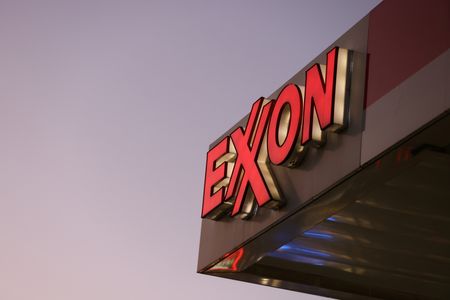 1
1 1
1

By Mahamat Ramadane and Sabrina Valle
N’DJAMENA (Reuters) -Chad may ask its courts to block Savannah Energy’s purchase of Exxon Mobil Corp’s assets in the country, saying the final terms of the deal were substantially different from what had been presented to it a year ago.
Exxon Mobil closed the $407 million sale of its operations in Central African countries Chad and Cameroon to London-listed Savannah on Friday.
Chad’s Hydrocarbon and Energy Ministry said in a statement that it took issue with Savannah’s claim that it had given “tacit consent” to the transaction with Exxon.
“Consequently, pending a final decision on the irregularity of this operation, the Republic will ask the competent courts to suspend the effects of an operation violating its rights over the resources of Chad,” the statement said.
A statement from Savannah Energy said that its acquisition of ExxonMobil’s interest in the Doba fields and the TOTCO Pipeline “was conducted in full conformity with the requirements of the governing documents and the applicable law”.
Exxon Mobil deferred comments to Savannah, as the new owner of the assets.
Malaysia’s state energy firm Petronas shared ownership of the assets with Exxon and Savannah Energy had initially struck a deal to buy its stakes in the operation.
However, in a separate statement on Tuesday, Savannah said it had agreed with Petronas to terminate their accord.
“The proposed acquisition remained subject to satisfaction of certain (previous) conditions … which have not yet been satisfied,” Savannah said.
On Friday, Savannah said the Exxon deal included the U.S. company’s 40% stake in Chad’s Doba oil project, which comprises seven producing oilfields with combined output of 28,000 barrels per day (bpd).
It also included Exxon’s interest in the more than 1,000 kilometre (621 mile) Chad/Cameroon pipeline from the landlocked nation to the Atlantic Gulf of Guinea coast through which its crude is exported.
“Doba’s oil operations and the Chad/Cameroon pipeline are vital and sovereign assets for Chad; they cannot be endangered by an irregular operation,” the ministry said. “Therefore, the Republic of Chad formally contests the operation between Exxon and Savannah.”
The hydrocarbons ministry said in the statement dated Dec. 12, but published on its Facebook page on Tuesday, that the sale of Exxon’s assets to Savannah also “flagrantly violates” national oil company SHT’s rights to information and pre-emption under a consortium agreement that binds Exxon.
(Reporting by Mahamat Ramadane in N’Djamena and Sabrina Valle in HoustonWriting by Sofia Christensen and Bate Felix Editing by Estelle Shirbon, Mark Potter, David Goodman and Crispian Balmer)